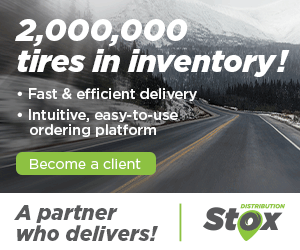Better to be safe than sorry when it comes to tax compliance. Here are some tips
This article was written in April, 2022, and at this time of the year, everyone in the country is thinking about taxes—personal taxes, corporate taxes, GST, HST, and taxes at the federal, provincial and municipal levels.
It’s exhausting to say the least. It often feels like there are more tax concepts to consider than manufacturer trim lines in the average dealership.
The CFO’s role at a typical dealership has evolved over the years. It now tends to include oversight on accounting, IT, HR and facilities-related matters. That said, one area of oversight has always been at the core of a CFO’s duties—tax. More specifically, tax compliance.
Dealerships want to stay on the right side of the fence with the CRA. Tax compliance issues can be very costly, so it’s important to stay up-to-date on these matters. Below, I discuss a couple of tax compliance issues retail dealers commonly face:
GST/HST and the “Tax Savings” concept
GST/HST is a tax that is paid on almost every good or service in Canada. Dealerships are required to collect the appropriate amount of tax from customers every time a car is sold or a work order is completed. While in theory this concept sounds simple, our industry adds some complications.
When a customer trades in a vehicle that they have already paid GST/HST on, we allow them to offset that tax against the GST/HST they’ll need to pay on the new vehicle they’re purchasing.
This concept, in the retail automotive world, is called “Tax Savings.” The key here is not to complicate the matter. In principle, customers should not be paying tax twice. You should only be paying GST/HST on any “additional” value you are receiving. In essence, the difference between the value you are trading and the value you are receiving.
Here is an example. Let’s say you are buying a vehicle worth $50,000 and are trading in a used one worth $20,000. You would only need to pay GST/HST on the $30,000 difference. That’s $3,900 in tax vs $6,500, a total savings of $2,600. Not bad from a customer’s perspective.
You can see how dealers could leverage this concept as a sales strategy. Truthfully, it makes sense—a sort of win-win sales strategy. Customers benefit from actual cash savings when buying a car, and the dealership gets a quality used vehicle that can be resold at a profit.
In today’s market conditions, dealers are doing whatever they can to procure used vehicles and this sales pitch should be part of the process. Try reeducating your staff on this concept rather than developing complex out-of-the box acquisition strategies. More often than usual, the simplest strategies work best.
Rules for Sales to Status Indians
To qualify for any tax exemption, customers must have a Certificate of Indian Status Card, issued by the federal government. Dealerships need to record the buyer’s Registry Number or Band Name, and keep a photocopy of the card in deal files for future audits.
Sales, leases, or repairs performed for Status Indians will be automatically exempt at the point of sale from the eight per cent provincial portion of the HST, meaning that you should only charge five per cent tax if the customer takes delivery off-reserve. Vehicles and parts delivered to a Status Indian purchaser on a reserve will be fully exempt from the 13 per cent HST.
In today’s market conditions, dealers aredoing whatever they can to procure used vehicles and this sales pitch should be part of the process.
You can see how this can get complicated. It is extremely important to know the rules and comply with the federal regulations surrounding them. If audited on this subject, you will have to produce evidence that, for example, the buyer took delivery on a reserve. Here are some recommendations on what to keep on file:
Purchase something such as gas on a reserve and get a dated receipt, showing the date and address
Take a photo of the vehicle beside a recognizable landmark on the reserve, such as a store, the band office or reserve sign
Log the distance driven between the dealership and the reserve address
This topic will be more important in some provinces than others, depending on their population of indigenous people.
The key takeaway here is to educate your sales staff, especially those younger folks that are new to the industry. Proper coaching will help you avoid many headaches in the future. Know the rules and retain the backup needed. This might be a good topic to bring up in your next Saturday morning meeting. A simple reminder like this goes a long way.
Tax rules can get very complicated so I would always recommend you consult a professional.
That said, compliance of tax law needs to be paramount in your dealership group and it all starts with the “tone-from-the-top.” Have your senior team draft some policies on these and other important tax topics and circulate them around your group. Train and retrain. Review deals for proper compliance. Build your own internal audit team.
Better to be safe than sorry when it comes to the tax man.











